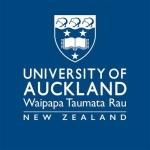Starpath is helping more students succeed at school
A pioneering research project, which is helping underachieving secondary school students succeed at school, is growing rapidly in scope.
Starpath, a partnership between The University of Auckland and the Government, was established in 2005 to determine evidence-based ways of improving education results for Māori, Pacific and students at low-mid decile schools.
Between 2005 and 2010 Starpath conducted extensive research and implemented strategies for improving student performance in five pilot schools. In 2011 the project was expanded to a further 16 secondary schools in Auckland and Northland.
The five pilot schools involved in the project have seen dramatic improvements in NCEA results. One school increased its Level 3 NCEA results by 18 percent while another’s Level 1 pass rate went from 4 percent to 60 percent and its level 2 rate from 40 percent to 58 percent. As part of the project parent-student-teacher conferences were redesigned, which led on average to a 40 percent increase in attendance of parents.
Starpath Acting Director Professor Stuart McNaughton says by tracking and monitoring student progress Starpath has developed significant strategies to address the barriers which are stopping students from succeeding at secondary school and entering tertiary study.
“For example in phase one of the research project we discovered that many Māori and Pacific students who were academically able weren’t getting accepted into the degree courses of their choice because they had made ill-informed NCEA subject choices.”
Phase two of the Starpath project, which started in 2011 and runs until 2015, addresses educational inequality by applying the lessons learned through its research in phase one in a much larger number of schools. “We started working with the 16 new schools last year, gathering and analysing student achievement data, with the aim of using it for academic counselling and for setting educational goals with students,” says Professor McNaughton.
It is expected that close to 40 schools in Auckland and Northland will be involved with the Starpath project by the end of this year.
Funding for Starpath is provided by the Tertiary Education Commission on the basis that the University raises matched funding from the private sector. The ASB Community Trust, a significant sponsor, provided Starpath with $1.55m between 2005-2010 and last year committed a further $1.5m under its Māori and Pacific Education Initiative.
Professor McNaughton says: “We are extremely grateful to ASB Community Trust for its ongoing financial support because it has allowed us to work with more schools. This means we will be able to help more young people succeed at secondary and tertiary level.”
